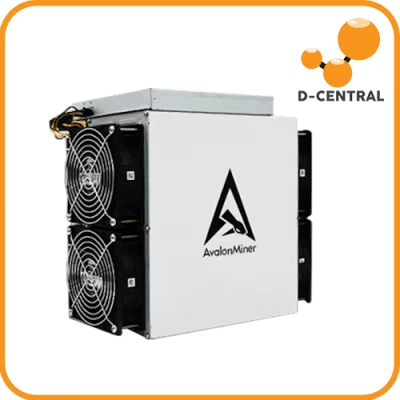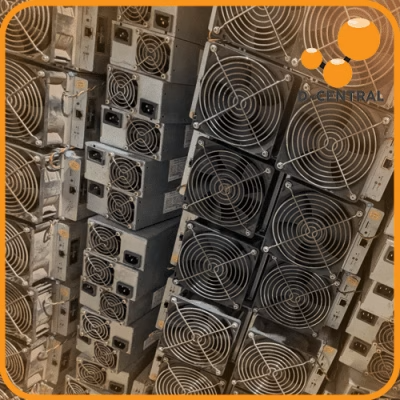In the intricate world of Bitcoin mining, location plays a pivotal role that often goes beyond the mere physical placement of mining equipment. The right location can be the difference between a profitable mining operation and one that barely breaks even. Factors such as climate, energy costs, and regulatory environment can significantly impact the efficiency and profitability of mining activities. As the saying goes, “location, location, location” holds true, even in the digital realm of cryptocurrencies.
Over the years, as the Bitcoin mining industry has matured, there’s been a noticeable shift from individual miners operating in their basements or garages to more organized, large-scale operations. This transition has given rise to the concept of colocation facilities. These are specialized data centers that offer a conducive environment for mining equipment. They provide optimal temperatures, robust security, and, most importantly, access to affordable electricity. Colocation facilities have become the backbone of the modern mining industry, offering miners the benefits of scale, security, and efficiency. As the demand for Bitcoin continues to grow, so does the importance of these facilities in ensuring that the mining process is as efficient and profitable as possible.
Understanding Bitcoin Miner Hosting
Bitcoin Miner Hosting, often referred to as colocation hosting for mining, is a specialized service where individual miners or mining companies place their mining hardware in dedicated facilities designed to accommodate and optimize the operations of such equipment. These facilities are equipped to handle the unique demands of cryptocurrency mining, providing the necessary infrastructure, security, and environmental conditions to ensure that mining equipment operates at peak efficiency.
Benefits of Bitcoin Miner Hosting:
- Optimized Environment: These facilities are designed to maintain the ideal temperature and humidity levels, ensuring that mining equipment doesn’t overheat and operates efficiently.
- Cost Savings: By leveraging economies of scale, hosting facilities can offer more competitive electricity rates, which is one of the most significant expenses in Bitcoin mining.
- Enhanced Security: With round-the-clock surveillance, advanced security protocols, and restricted access, miners can be assured of the safety of their valuable equipment.
- Technical Support: Most hosting facilities provide on-site technical support, ensuring that any hardware or software issues are addressed promptly, minimizing potential downtime.
- Scalability: As miners expand their operations, hosting facilities can easily accommodate additional equipment, allowing for seamless scaling of mining activities.
The world of Bitcoin mining has evolved dramatically since its early days. Initially, enthusiasts and early adopters mined Bitcoin using personal computers in their homes. However, as the Bitcoin network grew and the mining process became more resource-intensive, home-based mining became less viable. The increasing difficulty level of mining algorithms, coupled with rising electricity costs, made it challenging for individual miners to remain competitive.
This challenge led to the transition from home-based mining setups to colocation facilities. These specialized centers offered the infrastructure and resources required to mine profitably at scale. Miners no longer had to worry about exorbitant electricity bills, equipment overheating, or security concerns. Instead, they could focus on what they do best: mining, while the hosting facilities took care of the rest.
In essence, Bitcoin Miner Hosting has revolutionized the way mining operations are conducted, offering efficiency, security, and profitability in an increasingly competitive industry.
The Essence of Colocation in Mining
Colocation, in the context of cryptocurrency mining, refers to the practice of housing privately-owned mining equipment in a third-party data center. Instead of setting up, maintaining, and running a private data center, miners rent space in a colocation center where they can place their mining hardware. These centers are specifically designed to provide the infrastructure, power, cooling, and security needed to run mining equipment efficiently and effectively.
Significance in the Mining World: The world of cryptocurrency mining has become increasingly competitive. As the complexity of mining algorithms grows, so does the need for more powerful and efficient mining equipment. This, in turn, demands a stable and optimized environment to ensure maximum uptime and profitability. Colocation centers offer this environment, allowing miners to harness the full potential of their equipment without the operational headaches of running their own data center.
Colocation has become particularly significant as the industry shifts towards more power-intensive mining methods. With the advent of ASIC (Application-Specific Integrated Circuit) miners, which are hardware devices designed specifically for cryptocurrency mining, the power and cooling requirements have surged. These devices, while incredibly efficient, generate significant heat and consume vast amounts of electricity. Colocation centers, with their specialized cooling systems and access to cheap electricity, provide the perfect solution for ASIC mining.
Advantages of Using Colocation Data Centers for ASIC Mining:
- Power Efficiency: Colocation centers often have agreements with power providers for bulk rates, ensuring miners get the most cost-effective power solutions. This is crucial for ASIC miners, which are power-hungry devices.
- Cooling Solutions: ASIC miners generate a lot of heat. Colocation centers are equipped with advanced cooling systems, ensuring that the equipment remains at optimal temperatures, thereby extending their lifespan and maintaining efficiency.
- Security: One of the primary concerns for miners is the security of their expensive equipment. Colocation centers offer robust security measures, including 24/7 surveillance, biometric access controls, and on-site security personnel.
- Scalability: As miners expand their operations, colocation centers can accommodate additional ASIC miners without the need for miners to invest in infrastructure expansion.
- Maintenance and Support: Colocation centers often provide on-site technical support and maintenance services, ensuring that any issues with the ASIC miners are addressed promptly, reducing potential downtime.
In conclusion, as the cryptocurrency mining landscape evolves, the role of colocation centers becomes increasingly pivotal. For miners using ASIC devices, these centers offer a blend of efficiency, security, and cost-effectiveness, ensuring that their mining operations remain competitive and profitable in a challenging market.
Diving Deep: ASICs vs. GPUs
In the realm of cryptocurrency mining, the hardware used plays a pivotal role in determining efficiency, profitability, and overall success. Two of the most prominent types of hardware utilized in this industry are ASICs (Application-Specific Integrated Circuits) and GPUs (Graphics Processing Units). While both have their unique advantages, their applications and efficiencies vary significantly.
Introduction to ASICs and Their Role in Bitcoin Mining:
- What are ASICs?: ASICs, or Application-Specific Integrated Circuits, are specialized chips designed for a specific application, in this case, cryptocurrency mining. Unlike general-purpose hardware, ASICs are tailored for a particular use, making them highly efficient at their designated task.
- Role in Bitcoin Mining: ASIC miners have become the go-to choice for Bitcoin mining because of their unparalleled efficiency. Given that they are designed solely for mining purposes, they can process Bitcoin mining algorithms at much faster rates than other hardware. This efficiency translates to higher hash rates, which in turn means a higher probability of solving a block and earning rewards.
Benefits of GPUs in Mining and How They Compare with ASICs:
- Versatility of GPUs: Unlike ASICs, which are designed for a specific task, GPUs are general-purpose hardware units used primarily for rendering graphics in computer games. However, their versatile architecture makes them suitable for parallel processing tasks, such as cryptocurrency mining.
- Mining Altcoins: While ASICs dominate the Bitcoin mining scene, GPUs are more versatile and can mine a variety of altcoins. This flexibility allows miners to switch between different cryptocurrencies, depending on which is the most profitable at any given time.
- Upgradability and Resale Value: One of the significant advantages of GPUs over ASICs is their potential for other uses beyond mining. If a miner decides to exit the mining scene, GPUs can be repurposed for gaming or other graphic-intensive tasks, or even resold. ASICs, being specialized, don’t offer this flexibility.
- Cost and Accessibility: Initially, GPUs were a more accessible and cost-effective option for amateur miners. However, with the rise of ASICs and their decreasing costs, the gap has narrowed. Still, for those looking to mine altcoins or those on a tighter budget, GPUs might be a more viable option.
- Comparison in Efficiency: While GPUs are versatile and flexible, when it comes to sheer efficiency in Bitcoin mining, ASICs have the upper hand. Their specialized nature allows them to mine Bitcoin at much faster rates than GPUs, leading to higher profitability.
In conclusion, the choice between ASICs and GPUs boils down to the miner’s goals, budget, and the specific cryptocurrency they aim to mine. While ASICs offer unparalleled efficiency in Bitcoin mining, GPUs provide flexibility and versatility, making them suitable for mining a variety of cryptocurrencies. As the crypto landscape continues to evolve, both ASICs and GPUs will undoubtedly play crucial roles in shaping the future of mining.
Key Considerations in Choosing a Mining Hosting Location
Choosing the right location for mining hosting is a decision that can significantly impact the efficiency, security, and profitability of a mining operation. While the technical specifications of the mining hardware are crucial, the external environment in which they operate is equally vital. Here are some of the primary considerations miners should evaluate when selecting a hosting location:
The Importance of a Supportive Regulatory Environment:
- Legal Framework: Before setting up a mining operation, it’s essential to understand the legal landscape of the chosen location. Some countries or regions have favorable regulations for cryptocurrency mining, while others might impose restrictions or even bans. A supportive regulatory environment ensures that miners can operate without legal hindrances and potential shutdowns.
- Tax Implications: Taxation policies can vary widely from one jurisdiction to another. Miners should be aware of the tax implications of their profits, as well as any potential incentives or rebates offered by governments to promote tech or green energy initiatives.
- Stability and Predictability: A stable political and regulatory environment means fewer surprises for miners. Sudden regulatory shifts can be detrimental to operations, so a predictable landscape is preferable.
Climate Considerations:
- Cooler Climates: Mining hardware, especially ASICs, can generate significant heat. Locations with naturally cooler climates can help reduce cooling costs and ensure that the equipment operates at optimal temperatures, extending its lifespan.
- Challenges of Extreme Weather: Regions prone to excessive dust can lead to hardware contamination, reducing its efficiency and lifespan. Similarly, areas with heavy rainfall or snow can pose challenges in terms of infrastructure and accessibility. It’s essential to choose a location where the natural elements won’t adversely impact the mining operations.
Security Measures:
- Physical Security: The physical safety of the mining hardware is paramount. The chosen location should have robust security measures in place, including surveillance cameras, security personnel, and controlled access to prevent theft or vandalism.
- Network Security: Beyond just physical threats, miners should be wary of cyber threats. The hosting location should have advanced network security protocols to prevent hacks, DDoS attacks, and other cyber threats that can disrupt mining operations or compromise sensitive data.
- On-site Maintenance: Regular maintenance is crucial to ensure that mining hardware operates efficiently. Locations that offer on-site technical support and maintenance services can help address any hardware or software issues promptly, reducing potential downtime and ensuring continuous mining operations.
In conclusion, while the allure of cryptocurrency mining is undeniable, the success of a mining operation hinges on various factors, including the chosen hosting location. By carefully considering the regulatory environment, climate, and security measures of a potential location, miners can set themselves up for success, ensuring maximum efficiency and profitability.
Decoding the Costs: Understanding Pricing Structures
Navigating the financial landscape of cryptocurrency mining can be a complex endeavor. Beyond the initial investment in mining hardware, there are recurring costs associated with hosting, electricity, maintenance, and more. Understanding the pricing structures and the factors that influence them is crucial for miners to ensure profitability and sustainability of their operations.
Evaluating Contract Conditions and Pricing Models:
- Fixed vs. Variable Rates: Some hosting providers offer fixed-rate contracts, where miners pay a set fee regardless of market fluctuations. While this provides cost predictability, it may not always be the most cost-effective option. Variable rates, on the other hand, adjust based on market conditions, which can be beneficial during periods of low electricity prices but can also introduce unpredictability.
- Duration of the Contract: The length of the hosting contract can influence the overall cost. Longer contracts might offer discounted rates but can also lock miners into terms that might become less favorable over time. It’s essential to weigh the benefits of long-term contracts against the flexibility of shorter terms.
- Hidden Fees: Miners should be wary of any hidden fees in their contracts. This includes setup fees, maintenance fees, or any other additional charges that might not be evident upfront. A transparent pricing structure is crucial to avoid unexpected costs down the line.
The Significance of Sustainable Electricity and Its Impact on Costs:
- Electricity Rates: One of the most significant recurring costs in cryptocurrency mining is electricity. The efficiency of mining hardware is often measured in terms of watts per hash rate, and with mining operations running 24/7, electricity costs can quickly add up. Regions with lower electricity rates can significantly boost the profitability of mining operations.
- Green Energy Incentives: As the world shifts towards sustainable energy, many regions offer incentives for operations that use green energy sources. Utilizing renewable energy not only reduces the carbon footprint of the mining operation but can also lead to cost savings through rebates or reduced electricity rates.
- Long-term Sustainability: Relying on non-renewable energy sources can introduce price volatility, as these resources are finite and can be influenced by geopolitical factors. Sustainable electricity, derived from renewable sources like wind, solar, or hydro, offers more predictable pricing and ensures the long-term viability of the mining operation.
In conclusion, while the allure of cryptocurrency rewards is enticing, understanding the underlying costs is paramount. By decoding the pricing structures and recognizing the significance of sustainable electricity, miners can make informed decisions, ensuring that their operations remain profitable in the ever-evolving landscape of cryptocurrency mining.
Reputation and Flexibility: Why They Matter
In the dynamic world of cryptocurrency mining, where significant investments are at stake, the choice of a hosting provider can make or break an operation. Two critical factors that miners should prioritize when selecting a hosting provider are the company’s reputation and the flexibility they offer. Both these elements play a pivotal role in ensuring the success and profitability of mining endeavors.
The Importance of Researching a Hosting Company’s Reputation:
- Track Record: A hosting company’s past performance can be a reliable indicator of its reliability and efficiency. Miners should look for providers with a proven track record of uptime, security, and customer satisfaction. A history of consistent service can offer peace of mind, knowing that the mining operations are in capable hands.
- Customer Reviews and Testimonials: In today’s digital age, customer reviews and testimonials are invaluable. They provide insights into the real-world experiences of other miners with the hosting provider. Positive reviews can attest to the company’s quality of service, while negative feedback can highlight potential red flags.
- Transparency: A reputable hosting provider will be transparent about their operations, pricing structures, and any potential issues. This transparency builds trust, ensuring that miners are not met with unexpected surprises down the line.
- Industry Recognition: Awards, certifications, and recognition from industry bodies can further attest to a hosting company’s reputation. Such accolades often indicate a commitment to excellence and industry best practices.
The Need for Flexibility in Contracts and Mining Power Adjustments:
- Adapting to Market Conditions: The cryptocurrency market is notoriously volatile. Prices, difficulty levels, and profitability can fluctuate rapidly. A flexible contract allows miners to adapt to these changing conditions, ensuring that their operations remain viable even in uncertain times.
- Scalability: As miners expand their operations, they might need to add more hardware or switch to more powerful equipment. Hosting providers that offer flexibility in terms of scalability ensure that miners can grow their operations without logistical challenges.
- Customizable Power Solutions: Different mining hardware has varying power requirements. The ability to adjust power allocations based on the specific needs of the equipment can lead to cost savings and enhanced efficiency.
- Early Exit or Contract Modifications: Circumstances can change, and miners might need to exit a contract earlier than anticipated or modify its terms. Flexible contracts that allow for such changes without exorbitant penalties are invaluable.
In conclusion, while the technical aspects of mining are undoubtedly crucial, the softer elements like reputation and flexibility hold equal weight. By choosing a reputable hosting provider that offers flexible terms, miners can navigate the challenges of the cryptocurrency landscape with confidence, ensuring the longevity and profitability of their operations.
Navigating Mining Pools
Mining pools have become an integral part of the cryptocurrency landscape, allowing individual miners to combine their computational power and increase their chances of earning rewards. However, as with any collaborative effort, understanding the dynamics, transparency, and roles within a mining pool is essential to ensure a fair and profitable experience.
Understanding Mining Pool Transparency:
- Payout Structures: Different mining pools have varying payout structures, such as Pay Per Share (PPS), Pay Per Last N Shares (PPLNS), or Proportional. It’s crucial for miners to understand these structures and how rewards are distributed. Transparent mining pools will provide clear documentation and explanations of their payout schemes.
- Fee Structures: Most mining pools charge a fee for their services. A transparent pool will be upfront about these fees, ensuring that miners are not met with unexpected deductions from their rewards.
- Hashrate Reporting: Accurate reporting of a miner’s hashrate is vital to ensure they receive the correct proportion of rewards. Transparent mining pools will provide real-time, accessible data on individual and pool-wide hashrates.
- Transaction Records: Miners should have access to detailed records of their earnings, contributions, and payouts. Transparent pools will offer comprehensive transaction histories, allowing miners to track their performance and earnings over time.
The Role of Mining Pool Operators and Ensuring Profitability:
- Network Security: One of the primary responsibilities of a mining pool operator is to ensure the security of the pool. This includes protection against potential threats like DDoS attacks, ensuring that the mining process remains uninterrupted.
- Regular Payouts: Reliable pool operators will ensure timely and consistent payouts to miners based on the agreed-upon structure. Delays or inconsistencies in payments can be a red flag.
- Communication and Support: Effective communication is key to a successful mining pool. Operators should be accessible, providing regular updates, addressing concerns, and offering support to miners when needed.
- Server Stability: The stability of the pool’s servers is crucial to ensure continuous mining. Regular downtimes or server issues can impact miners’ profitability. A responsible operator will invest in robust infrastructure and ensure server uptime.
- Fair Distribution of Rewards: Ensuring that rewards are distributed fairly based on the contributions of miners is a critical role of the pool operator. This not only ensures profitability for miners but also fosters trust within the pool.
In conclusion, while mining pools offer a collaborative approach to cryptocurrency mining, ensuring transparency and understanding the role of pool operators is paramount. By navigating the intricacies of mining pools with knowledge and vigilance, miners can optimize their earnings and enjoy a more profitable mining experience.
Energy Supply: The Lifeline of Mining Operations
Cryptocurrency mining is an energy-intensive process. The computational power required to solve complex algorithms and validate transactions on the blockchain demands a substantial amount of electricity. As such, the energy supply becomes the very lifeline of mining operations, determining not just the efficiency but also the profitability and sustainability of the endeavor.
The Need for a Consistent and Sustainable Energy Supply:
- Operational Efficiency: Mining hardware, especially high-performance ASICs, requires a steady supply of power to operate at peak efficiency. Any fluctuations or interruptions in the energy supply can lead to reduced hash rates, impacting the chances of earning rewards.
- Cost Implications: Electricity is one of the most significant operational costs in cryptocurrency mining. Access to a consistent and affordable energy supply can significantly influence the profitability of mining operations. Regions with lower electricity rates or those offering incentives for green energy consumption can be more lucrative for miners.
- Environmental Considerations: The environmental impact of cryptocurrency mining has been a topic of discussion and concern. Sustainable energy sources, such as solar, wind, or hydroelectric power, can reduce the carbon footprint of mining operations. Adopting green energy not only makes the operation environmentally friendly but can also offer cost benefits in the long run.
- Hardware Longevity: Consistent power ensures that mining hardware operates within optimal temperature ranges. Fluctuations or surges in power can lead to overheating, reducing the lifespan of the equipment.
The Role of Power Backups in Ensuring Uninterrupted Mining:
- Continuous Operation: Cryptocurrency mining is a 24/7 operation. Any downtime, even if for a short duration, can result in lost opportunities and reduced earnings. Power backups, such as generators or battery systems, ensure that mining continues uninterrupted even in the event of power outages.
- Protection Against Data Loss: Sudden power interruptions can lead to data loss or corruption. Having a backup power system in place ensures that there’s enough time to safely shut down systems or switch to an alternative power source, protecting data integrity.
- Operational Peace of Mind: Knowing that there’s a backup power system in place offers miners peace of mind. It reduces the stress of potential power interruptions and allows miners to focus on optimizing their operations.
In conclusion, the energy supply is undeniably the backbone of cryptocurrency mining. Ensuring access to a consistent, sustainable, and backup-supported energy source is paramount for the success, profitability, and longevity of any mining operation. As the industry evolves, the emphasis on green and sustainable energy solutions is set to grow, aligning profitability with environmental responsibility.
Conclusion
The world of cryptocurrency mining is as intricate as it is promising. As we’ve journeyed through the various facets of mining hosting, it becomes evident that the success of a mining operation isn’t solely dependent on the prowess of the hardware but is significantly influenced by a myriad of external factors.
Location stands out as a paramount consideration. From the regulatory environment to the climatic conditions, the geographical choice can impact operational costs, efficiency, and overall profitability. But beyond just the physical location, the infrastructure, energy supply, and the reputation of hosting providers play crucial roles in shaping the mining experience.
Moreover, the transition from individual, home-based mining to colocation facilities underscores the industry’s evolution. With this shift comes the need for heightened security, both in terms of physical hardware protection and network integrity. The emphasis on sustainable energy sources, the intricacies of mining pools, and the importance of backup systems further highlight the complexity of the mining landscape.
For potential miners or those looking to expand their operations, the message is clear: thorough research is your best ally. Dive deep into the specifics of contract conditions, understand the nuances of different energy sources, and prioritize transparency and reputation in hosting providers.
In the dynamic realm of cryptocurrency, where the only constant is change, being well-informed and adaptable are the keys to success. As the digital gold rush continues, may your endeavors be strategic, sustainable, and, above all, successful.







